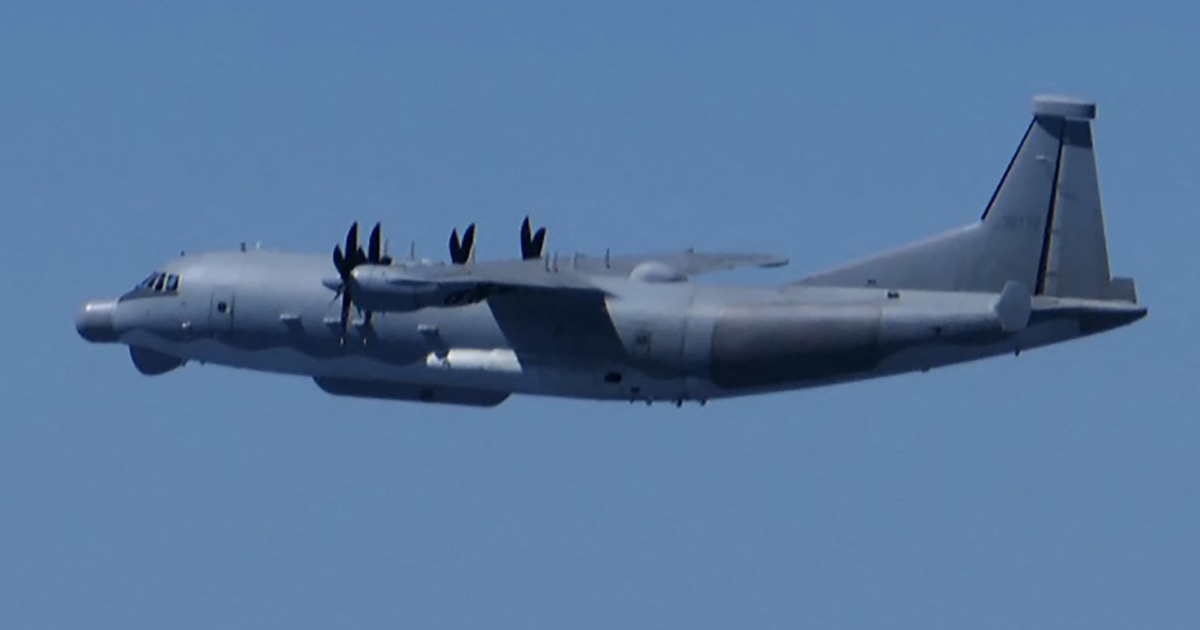TOKYO — The violation of Japan’s airspace by a Chinese military plane is “completely unacceptable,” the Japanese government’s top spokesperson said Tuesday, a day after the U.S. ally scrambled its military in response to what it said was an unprecedented incursion.
While Beijing said it has no intention of violating any country’s airspace, China’s military assertiveness in the Asia-Pacific, where it has vast territorial claims, has been a growing source of concern for the United States as well as China’s neighbors in the region, with confrontations becoming more common.
A Chinese military Y-9 intelligence-gathering aircraft entered Japanese airspace in the territorial waters off the Danjo Islands southwest of Japan’s main southern island of Kyushu from about 11:29 to 11:31 a.m. on Monday (10:29 to 10:31 p.m. Sunday ET), Chief Cabinet Secretary Yoshimasa Hayashi said, prompting Japan’s Air Self-Defense Force to warn it away.
“The incursion of our nation’s airspace by a Chinese military aircraft is not only a serious violation of our country’s sovereignty, but also a threat to our safety, and we consider it completely unacceptable,” he said at a daily news briefing.
Hayashi said Japan had lodged an “extremely severe” protest with the Chinese government through diplomatic channels on Monday and “strongly demanded that preventive measures are taken.”
The Japanese Foreign Ministry said Monday that it had summoned the acting Chinese ambassador.
Chinese Foreign Ministry spokesperson Lin Jian said Tuesday that relevant departments in China were verifying what had happened.
“I’d like to stress that China has no intention to breach any country’s airspace,” he said at a regular briefing in Beijing.
Gen. Hiroaki Uchikura, chief of staff of Japan’s Air Self-Defense Force, did not describe the exact actions taken by the Japanese military or discuss the behavior of the Chinese plane. But he said that in general, warnings are issued first over the radio on an emergency communication frequency, and then the pilot will send a visual warning to the other aircraft by fluttering the plane’s wing. If the other pilot still refuses to comply, a flare is fired.
“I believe that the Chinese military’s activities in the skies are generally expanding and becoming more active,” Uchikura said at a news conference Tuesday.
While the purpose of the Chinese military aircraft’s actions was unclear, Hayashi said the Japanese government would “continue to monitor China’s military activities with keen interest.”
The officials’ remarks on Tuesday came as a bipartisan delegation of Japanese lawmakers left for Beijing to improve relations between the two countries, which are embroiled in a long-running territorial dispute over a group of uninhabited islands known in Japan as the Senkaku and in China as the Diaoyu.
U.S. national security adviser Jake Sullivan also arrived in Beijing on Tuesday for talks with senior Chinese officials that are expected to touch on tensions in the South China Sea, a strategically important waterway that China claims almost in its entirety.
Though multiple countries are involved in territorial disputes in the South China Sea, China and the Philippines have been at the center of some of the most serious recent encounters. Those have raised concerns that the U.S., a longtime treaty ally of the Philippines, could be drawn into a larger conflict.
On Tuesday, Philippine defense secretary said China was “the biggest disruptor” of peace in Southeast Asia and that there should be “stronger collective multilateral action against China,” a day after China blocked Philippine boats from delivering supplies to a coast guard ship at the disputed Sabina Shoal.
China said the Philippine ships had intruded in its territorial waters and then escalated the situation.
Arata Yamamoto reported from Tokyo, and Jennifer Jett reported from Hong Kong.

